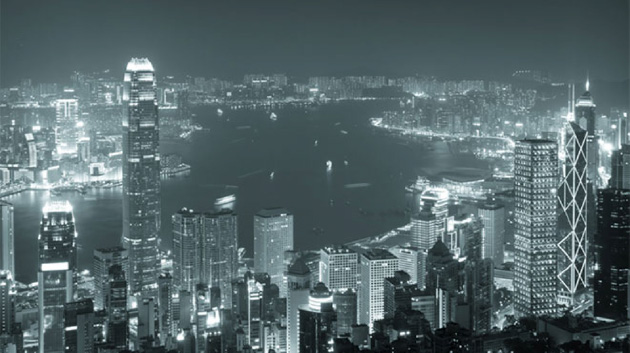China Exercises Jurisdiction Within Hong Kong Borders
Freedom Is Being Sold for Money
Key points in this article:
- High-speed railway between Hong Kong and China introduces new plan for a Chinese immigration building in the Hong Kong terminal
- Hong Kong pro-democracy groups protest in fear of jurisdiction over the Hong Kong railway being handed over to China
- China is converting economic power into military power throughout the world. Hong Kong must protect its freedom and prosperity from China’s ambitions
20 years ago China gave Hong Kong special autonomy, and now they are slowly whittling away at it.
On the 7th August, Hong Kong Chief Executive, Carrie Lam, made her first visit to Beijing since her inauguration for talks with the top executives of China’s railway industry.
They confirmed a plan to construct a Chinese immigration building in the Hong Kong terminal of the Hong Kong-Guangzhou Express Rail Link project. Anxious about the potential for China to exercise jurisdiction in a railway station within Hong Kong’s borders, Hong Kong’s pro-democracy groups have raised their voices in protest, Sankei Shimbun reported on the 8th August.
When Hong Kong sovereignty was handed over from Britain to China in 1997, the ‘One Country, Two Systems’ policy was maintained. This enabled Hong Kong’s autonomy. People travelling from China to Hong Kong via the existing railway line needed to undergo customs procedures when leaving the station in China and upon entering Hong Kong.
According to Hong Kong’s national broadcasting channel RTHK, Carrie Lam explained that, “a joint checkpoint [a single place for customs procedures] is a precondition for socio-economic success with the railway project”. The Lam administration is forwarding a plan to have Chinese officials stationed at the Hong Kong terminal to take charge of customs, immigration and quarantine.
Hong Kong People Will Become More Restrained by China
The Basic law – Hong Kong’s equivalent of a constitution – prohibits the invocation of China’s laws within Hong Kong’s borders. Some pro-democracy groups have filed a lawsuit claiming that the joint railway checkpoint infringes on the ‘One Country, Two Systems’ policy.
Japanese newspapers reported a former pro-democracy legislator’s warnings that China having jurisdiction within Hong Kong’s borders could mean “Chinese authorities and Hong Kong police can get people they arrest or restrain and transport them off to Mainland China via the railway”.
In the Causeway bay Bookstore incident in 2015, Chinese authorities restrained five people involved in the publication of a book that criticized the Chinese Communist Party. The people in that case were restrained upon entering Shenzhen.
Carrie Lam places great emphasis on the convenience of establishing a joint checkpoint, but this pro-China leader has no awareness that this will become another opportunity for China to further infringe on Hong Kong’s autonomy. Hong Kong is beginning to ignore the ‘One Country, Two Systems’ policy, and is becoming increasingly China-ized.
Around the World China Converts Economic Power into Military Power
Blinded by immediate economic profit, many of China’s global business partners are likewise ignorant of China’s invasive threat.
For instance, China has been advancing infrastructure maintenance in railways, airports and harbors around Asia and Africa through the AIIB New Silk Road project. China is looking to build military facilities in exchange for this infrastructure support.
In July, China constructed a military supplies facility in Djibouti, East Africa. While this may seem insignificant, it is a sure step in their nonstop military expansion. Economic reliance on China comes with the risk of becoming one of China’s military colonies.
China has also been mass buying forests and farmland in the U.S., Australia and France, and other large expanses of land in Hokkaido, Niigata and Okinawa in Japan.
The locals, confronting the issue of depopulation, find it attractive to rely on China with its vast population and financial power. Despite global criticism, China continues to use its economic power as a weapon to expand its military influence.
How to Stop Hong Kong From Becoming China
Master Ryuho Okawa, founder and CEO of Happy Science, has written and spoken extensively on the problem of Hong Kong’s freedom being infringed. The following is a passage from his book “The Eye for Global Politics”:
“Many adults and older people have already given up; they think, ‘Hong Kong is already part of China.’ The students, however, have not given up yet. That is why we want to support them ideologically. The billions of people in China are in a very unfortunate situation. The Beijing government thinks of the people like animals that can be trained by feeding them ‘treats’. But the government must know that there is a limit to what is acceptable.”
With a pro-China Chief Executive now leading Hong Kong, the region faces greater danger of becoming absorbed by China. Hong Kong has no military force that can fight against the Beijing government. Global opinion must come to Hong Kong’s support in order to protect its current freedom and prosperity.



















